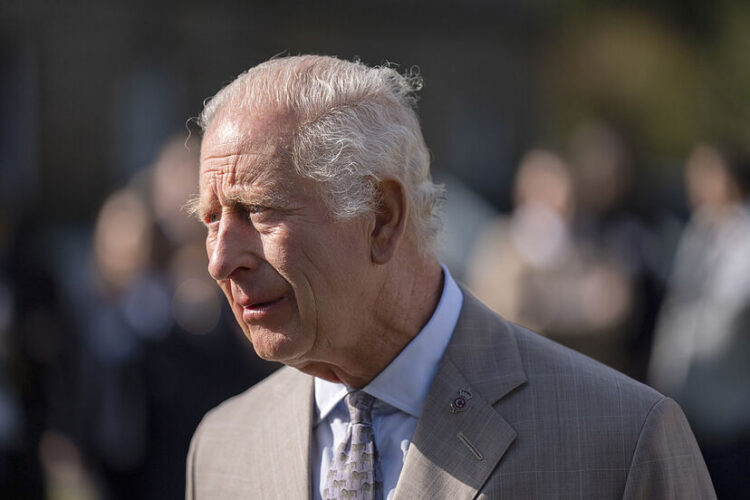. As the oldest monarch to take the throne, King Charles’s health has been a subject of public interest and speculation. In this article, we will explore various aspects of his health, including his medical history, lifestyle choices, and the implications for the monarchy and the nation. Understanding the health of the king is essential not only for royal observers but also for the British public, as it impacts the monarchy’s continuity and the royal family’s public image.
King Charles’s Medical History
King Charles was born on November 14, 1948, and has enjoyed a relatively healthy life. However, like many individuals in their seventies, he has faced various health challenges. He has had a history of health issues that have required attention and care:
- COVID-19: In February 2022, King Charles tested positive for COVID-19. At the time, he experienced mild symptoms and self-isolated, following public health guidelines. His wife, Camilla, Duchess of Cornwall, tested negative. Charles’s mild bout with the virus, compared to many severe cases, underscored the importance of vaccinations and health precautions.
- Knee Issues: Over the years, King Charles has dealt with knee problems that have necessitated surgery. In 2018, he underwent an operation to treat a long-standing knee issue that had affected his mobility. Post-surgery, he expressed gratitude for the care he received and the improvement in his mobility, which allowed him to continue his royal duties.
- Other Minor Ailments: Reports have indicated that King Charles has experienced other minor health issues over the years, such as occasional back pain. However, these issues have not significantly impacted his public engagements.
Health and Lifestyle Choices
King Charles is known for his commitment to a healthy lifestyle, which may contribute to his overall well-being. Some of his lifestyle choices include:
- Diet: The king follows a predominantly organic diet, which he has advocated for years. He has been an outspoken supporter of organic farming and sustainability. His emphasis on healthy eating reflects his belief in the importance of nutrition for maintaining good health.
- Physical Activity: King Charles has a strong interest in physical fitness. He enjoys outdoor activities, such as walking and gardening, which help him stay active. His love for the countryside and nature is well-documented, and he often engages in activities that promote physical and mental well-being.
- Stress Management: As a public figure, King Charles faces considerable stress. He has acknowledged the importance of mental health and well-being. He has been involved in various initiatives to raise awareness about mental health issues, reflecting his understanding of the need for balance in life.
- Alternative Therapies: King Charles has expressed interest in alternative therapies and holistic approaches to health. He has been a long-time advocate of complementary medicine, believing in the benefits of practices like acupuncture and homeopathy.
Public Perception and Concerns
King Charles’s health is closely monitored by the public and the media, especially given his age and the historical context of British monarchs’ health issues. Concerns about the king’s health often arise during significant events, royal engagements, and official duties. The monarchy’s public image can be influenced by how the king appears and performs at such events.
- Age and Leadership: As the oldest monarch to take the throne, King Charles’s age raises questions about his ability to fulfill the demanding role of the British monarch. The public’s concern for his health can lead to speculation about succession and the future of the monarchy.
- Support from Family: The royal family has expressed support for King Charles as he navigates his role. Camilla, the Duchess of Cornwall, plays a vital role in supporting him, both personally and professionally. Their partnership has been instrumental in managing the demands of royal life.
- Media Scrutiny: The media’s attention to the king’s health can sometimes lead to sensationalism. Reports of his health status can spark rumors, which may not always reflect reality. Therefore, it is essential for the royal family to maintain transparency about health issues while protecting the king’s privacy.
Impact of Health on Royal Duties
The health of King Charles is critical to the functioning of the monarchy. His ability to perform royal duties influences public perception and the royal family’s reputation. Some key considerations include:
- Official Engagements: The king’s health affects his ability to attend events, engage with the public, and represent the nation. A healthy monarch can participate more actively in diplomatic engagements, charity events, and public ceremonies.
- Succession Planning: King Charles’s health status raises questions about succession and the role of other royals. The monarchy must ensure a smooth transition in case of health issues that prevent the king from carrying out his duties.
- Public Trust: The monarchy’s image is tied to the king’s health and vitality. A healthy and active monarch can bolster public trust and confidence in the institution, while health issues may lead to concerns about the monarchy’s stability.
The Role of Medical Professionals
The health of King Charles is managed by a team of medical professionals who oversee his well-being. This team is responsible for regular check-ups, monitoring any health issues, and providing care as needed. Some aspects of this medical support include:
- Regular Check-Ups: Routine medical examinations are crucial for early detection of any health concerns. King Charles likely undergoes regular assessments to ensure his health is monitored closely.
- Specialized Care: Given his status, King Charles has access to specialized medical care. His team consists of experts in various fields, ensuring that he receives the best possible treatment when necessary.
- Confidentiality and Privacy: While there is public interest in the king’s health, medical professionals maintain strict confidentiality regarding his medical history and treatment. This balance is vital in protecting the king’s privacy while addressing public concerns.
Public Health Initiatives and Advocacy
King Charles has been an advocate for various health-related issues throughout his public life. His commitment to health extends beyond his own well-being to the promotion of public health initiatives:
- Mental Health Awareness: King Charles has participated in campaigns aimed at raising awareness about mental health issues. His involvement highlights the importance of mental well-being, especially in the context of stress and public life.
- Environmental Health: As a proponent of sustainable living, King Charles has emphasized the connection between environmental health and personal well-being. His advocacy for organic farming and sustainability reflects a holistic view of health.
- Community Engagement: Through his charitable foundation, the Prince’s Trust, King Charles has supported numerous initiatives related to health and well-being, particularly among youth. This involvement demonstrates his commitment to improving the health of the community.
Conclusion
King Charles III’s health is a multifaceted issue that encompasses his medical history, lifestyle choices, public perception, and the implications for the monarchy. As the oldest monarch to take the throne, concerns about his health are understandable, but his commitment to a healthy lifestyle and advocacy for publi

